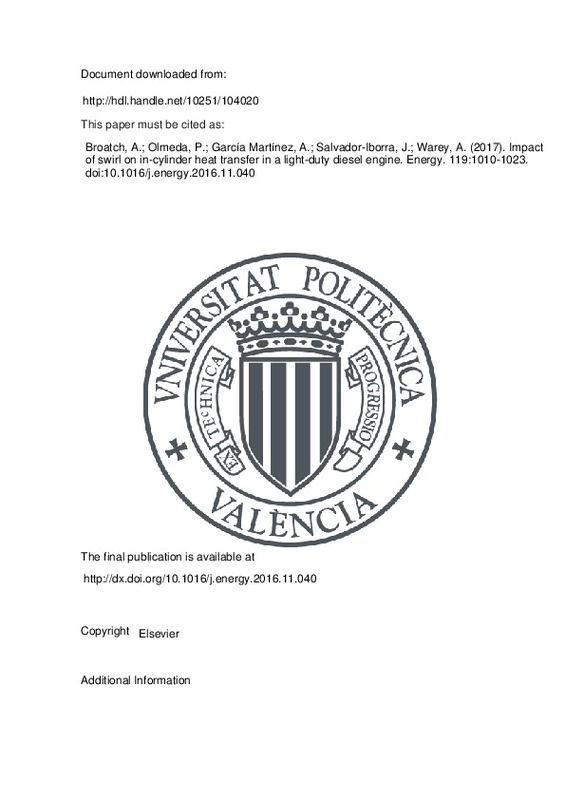JavaScript is disabled for your browser. Some features of this site may not work without it.
Buscar en RiuNet
Listar
Mi cuenta
Estadísticas
Ayuda RiuNet
Admin. UPV
Impact of swirl on in-cylinder heat transfer in a light-duty diesel engine
Mostrar el registro completo del ítem
Broatch, A.; Olmeda, P.; García Martínez, A.; Salvador-Iborra, J.; Warey, A. (2017). Impact of swirl on in-cylinder heat transfer in a light-duty diesel engine. Energy. 119:1010-1023. doi:10.1016/j.energy.2016.11.040
Por favor, use este identificador para citar o enlazar este ítem: http://hdl.handle.net/10251/104020
Ficheros en el ítem
Metadatos del ítem
| Título: | Impact of swirl on in-cylinder heat transfer in a light-duty diesel engine | |||
| Autor: | Salvador-Iborra, Josep Warey, Alok | |||
| Entidad UPV: |
|
|||
| Fecha difusión: |
|
|||
| Resumen: |
[EN] One of the key strategies to reduce CO2 emissions is to improve the efficiency of engines in order to diminish fuel consumption. A way to increase engine efficiency is to reduce the heat losses. Internal heat transfer ...[+]
|
|||
| Palabras clave: |
|
|||
| Derechos de uso: | Reconocimiento - No comercial - Sin obra derivada (by-nc-nd) | |||
| Fuente: |
|
|||
| DOI: |
|
|||
| Editorial: |
|
|||
| Versión del editor: | http://dx.doi.org/10.1016/j.energy.2016.11.040 | |||
| Código del Proyecto: |
|
|||
| Agradecimientos: |
The authors acknowledge General Motors Global R&D for supporting this research. The equipment used in this work was partially supported by FEDER project funds "Dotacion de infraestructuras cientifico tecnicas para el Centro ...[+]
|
|||
| Tipo: |
|







![[Cerrado]](/themes/UPV/images/candado.png)


